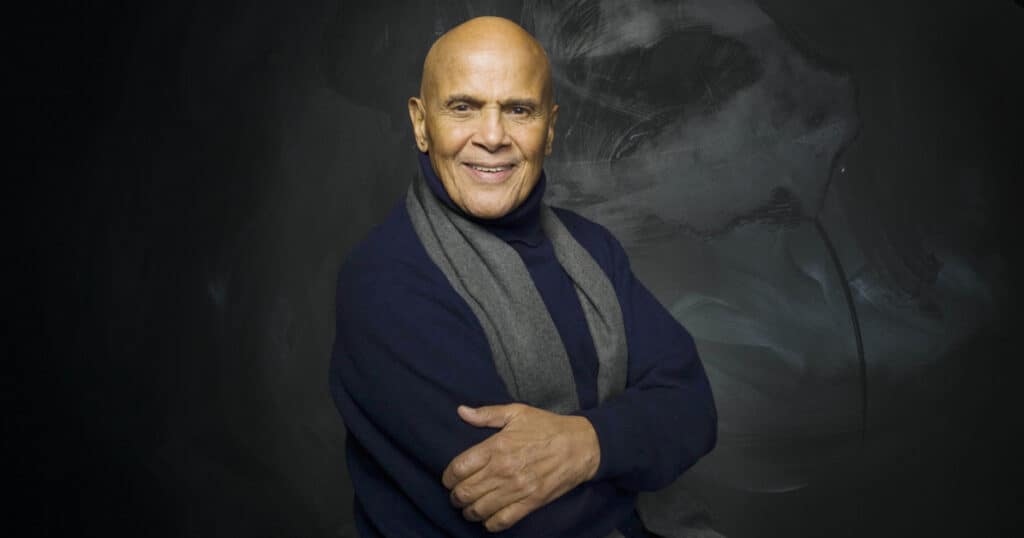Last Updated on April 28, 2023

The legendary Harry Belafonte, whose calypso music is still enjoyed to this day, has been confirmed by his longtime spokesman, Ken Sunshine, to The Hollywood Reporter that the Caribbean-American artist passed on Tuesday due to congestive heart failure at his home on the Upper West Side of Manhattan. Belafonte was also an actor who used his fame to garner attention to his causes which include shining a light on civil rights injustices around the world. Belafonte had received the Jean Hersholt Humanitarian Award from the Academy of Motion Picture Arts and Sciences back in November of 2014.
Belafonte’s hits, “Day-O (Banana Boat Song)” and “Jump in the Line” have found an immortalized place in pop culture thanks in part to their use in the popular movie Beetlejuice, which still connects with younger audiences today. However, the calypso singer would explode onto the billboard charts with his first album, Belafonte, in 1956.
Belafonte would describe the meaning behind one of his biggest songs. “When I sing the ‘Banana Boat Song,’ the song is a work song. It’s about men who sweat all day long, and they are underpaid, and they’re begging the tallyman to come and give them an honest count — counting the bananas that I’ve picked, so I can be paid. And sometimes, when they couldn’t get money, they’ll give them a drink of rum. There’s a lyric in the song that says, ‘Work all night on a drink of rum.’ People sing and delight and dance and love it, but they don’t really understand unless they study the song that they’re singing a work song that’s a song of rebellion.”
His acting career would include such films as the revisionist western Buck and the Preacher, where he co-starred along with his friend, Sidney Poitier, who had made his directorial debut with that film. He would re-team with Poitier in Uptown Saturday Night, where he would portray another irreverent character as a ghetto gang leader. Belafonte would continue to work in film with White Man’s Burden co-starring John Travolta, and can be seen as recently as 2018’s BlacKkKlansman from director Spike Lee.
The legend would be an instrumental figure in the civil rights movement as he would orchestrate a gathering of notable celebrities to bring attention to the Freedom March on Washington in 1963, where Martin Luther King Jr. recited his famous “I Have a Dream” speech. He would also participate in the Alabama march that took place between Selma and Montgomery. Belafonte would also become a driving force behind the nonprofit organization USA for Africa, which was launched to stamp out famine. As well as the famous 80s campaign, Hands Across America, which helped to benefit the poverty-stricken in America.
Belafonte would publish a memoir titled, My Song, in 2011. He has long credited his mother for influencing his activism, “Don’t ever let injustice go by unchallenged,” he says she told him. “And that really became a deep part of my life’s DNA. A lot of people say to me, ‘When as an artist did you decide to become an activist?’ I say to them, ‘I was long an activist before I became an artist.’”
















Follow the JOBLO MOVIE NETWORK
Follow us on YOUTUBE
Follow ARROW IN THE HEAD
Follow AITH on YOUTUBE